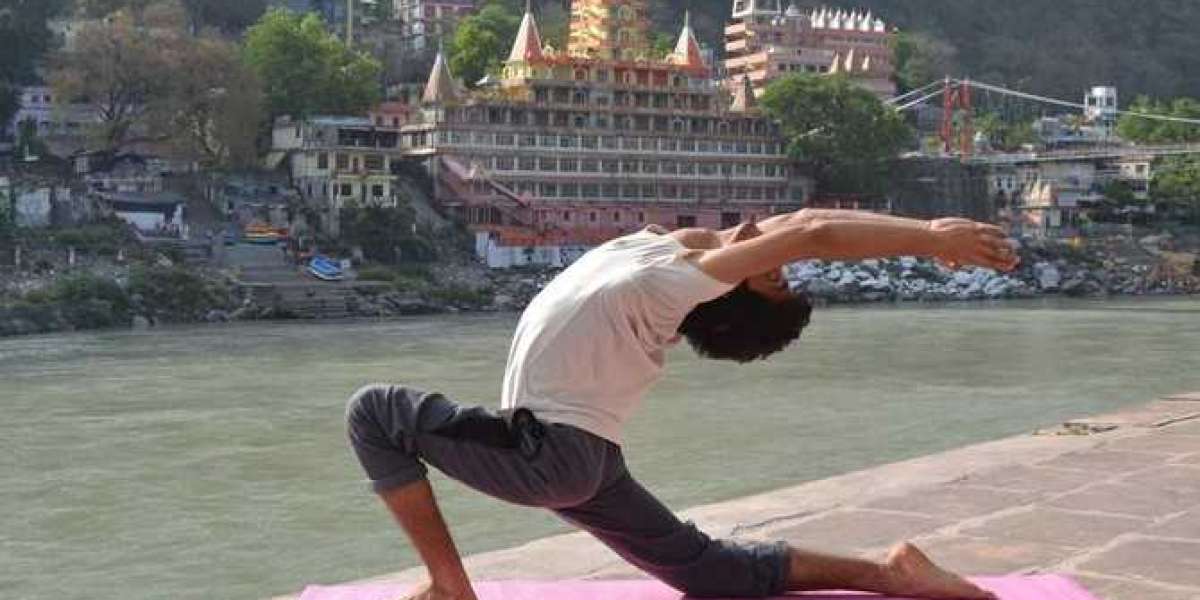Rishikesh, often referred to as the "Yoga Capital of the World," attracts thousands of travelers each year who come seeking peace, spirituality, and self-discovery. Nestled in the foothills of the Himalayas and blessed with the sacred waters of the Ganges River, this serene town is more than just a tourist destination—it is a place where journeys of transformation begin. Many visitors arrive as curious tourists and leave as certified yoga teachers, carrying with them not only memories of the land but also a lifelong skill and a deeper understanding of yoga.
This transition from tourist to teacher is a profound experience, blending the charm of Rishikesh with the discipline and wisdom of yoga teacher training programs. Let’s explore how a visit to this spiritual hub can turn into a journey of personal and professional growth.
The Magnetic Pull of Rishikesh
Rishikesh is unlike any other destination. The gentle chants of mantras, the sound of temple bells, the sight of orange-clad sadhus, and the flowing Ganges create an atmosphere charged with spirituality. Tourists often arrive to soak in the cultural and natural beauty—attending Ganga Aarti, visiting ashrams, rafting in the river, or trekking in the nearby hills.
Yet, for many, the immersion goes deeper. Yoga studios and ashrams scattered throughout the town invite travelers to explore the ancient practice. What starts as a casual drop-in yoga class soon evolves into curiosity about the philosophy, history, and science behind yoga. This curiosity becomes the seed for enrolling in a structured yoga teacher training course (YTT).
Why Choose Rishikesh for Yoga Teacher Training?
While yoga schools exist all over the world, Rishikesh holds a special place for aspiring teachers. Here’s why:
Authenticity of Tradition – Rishikesh is home to ancient ashrams and renowned yoga gurus. The teachings here are rooted in centuries-old traditions passed down through lineages.
Sacred Environment – Practicing yoga on the banks of the holy Ganges or meditating in Himalayan foothills offers an energy and atmosphere that cannot be replicated elsewhere.
Global Community – Students from around the world come to Rishikesh for training, creating a rich cultural exchange and lifelong friendships.
Holistic Curriculum – Schools here focus not only on the physical postures but also on pranayama, meditation, yoga philosophy, anatomy, and teaching methodology.
Affordable Learning – Compared to Western countries, yoga teacher training in Rishikesh is more affordable, while maintaining high standards of education and accommodation.
The Journey from Student to Teacher
Enrolling in a 200-hour Yoga Teacher Training Course (200-hour YTTC) is usually the first step for tourists who want to dive deeper. This foundational program covers:
Asanas (Postures): Understanding alignment, benefits, and variations.
Pranayama (Breathwork): Learning techniques to harness life energy through breath.
Meditation Practices: Developing concentration and inner awareness.
Philosophy: Exploring ancient texts like the Yoga Sutras of Patanjali and the Bhagavad Gita.
Anatomy Physiology: Studying how yoga impacts the body and mind.
Teaching Methodology: Gaining confidence to guide others safely.
For many, this month-long immersive course is life-changing. Students experience discipline through daily practice, detoxify their bodies with a sattvic diet, and find clarity by living a yogic lifestyle. By the end, they not only earn certification accredited by Yoga Alliance but also discover a newfound confidence to guide others.
Some tourists go further, enrolling in 300-hour or 500-hour advanced teacher training programs, refining their skills and specializing in areas such as yoga therapy, Ayurveda, or meditation.
Challenges Along the Way
The transition from tourist to teacher is not always easy. The rigorous schedule of yoga teacher training can be demanding. Days typically start at dawn with meditation and pranayama, followed by asana practice, lectures, and group discussions. Physical fatigue, mental resistance, and emotional releases are all part of the journey.
However, these challenges are essential for growth. By persevering, students develop discipline, resilience, and self-awareness—qualities that define a true yoga teacher.
Beyond Certification: Life as a Yoga Teacher
Graduating from a yoga teacher training in Rishikesh opens doors to multiple possibilities. Some new teachers stay in India longer, assisting their mentors or teaching drop-in classes. Others return home to start their yoga studios, join fitness centers, or even travel the world teaching yoga retreats and workshops.
But beyond career opportunities, the biggest transformation lies within. Many who came as casual tourists leave Rishikesh with a deeper connection to themselves. The training instills mindfulness, compassion, and a sense of purpose. Teaching yoga becomes more than a profession—it becomes a way of life.
Tips for Tourists Considering Yoga Teacher Training in Rishikesh
Research Schools: Look for Yoga Alliance-certified schools with experienced teachers.
Check Curriculum: Ensure the program covers both physical and theoretical aspects.
Prepare Physically and Mentally: Start practicing yoga regularly before enrolling.
Embrace Simplicity: Be open to simple living, vegetarian meals, and minimal comforts.
Keep an Open Heart: The journey is as much spiritual as it is educational.
The Transformation
What makes Rishikesh special is the way it transforms ordinary visits into extraordinary journeys. A tourist arriving with a backpack and curiosity often departs with a yoga mat, a certificate, and a heart full of wisdom. The sacred town not only teaches how to perform asanas but also how to live mindfully, breathe consciously, and connect deeply with the self.
The transition from tourist to teacher is more than acquiring skills—it is about evolving into someone who can share the gift of yoga with others. And for many, that journey begins on the banks of the Ganges in Rishikesh.
Conclusion
Rishikesh is not just a tourist destination—it is a spiritual classroom where seekers from all walks of life come to learn, grow, and transform. Yoga teacher training in this sacred city offers more than professional certification; it offers a pathway to inner peace and purpose.
For those who come as tourists, the experience often plants a seed of transformation. With dedication, that seed blossoms into a journey of teaching, sharing, and living yoga.








